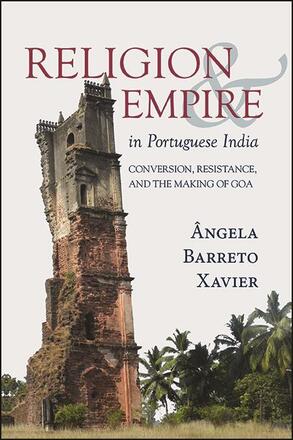
Religion and Empire in Portuguese India
Conversion, Resistance, and the Making of Goa
Alternative formats available from:
Examines the colonization of Goa in the sixteenth and seventeenth centuries and the durability of Portuguese rule.
Description
How did the colonization of Goa in the sixteenth and seventeenth centuries take place? How was it related to projects for the conversion of Goan colonial subjects to Catholicism? In Religion and Empire in Portuguese India, Ângela Barreto Xavier examines these questions through a reading of the relevant secular and missionary archives and texts. She shows how the twin drives of conversion and colonization in Portuguese India resulted in a variety of outcomes, ranging from negotiation to passive resistance to moments of extreme violence. Focusing on the rural hinterlands rather than the city of Goa itself, Barreto Xavier shows how Goan actors were able to seize hold of complex cultural resources in order to further their own projects and narrate their own myths and histories. In the process, she argues, Portuguese Goa emerged as a space with a specific identity that was a result of these contestations and interactions. The book de-essentializes the categories of colonizer and colonized, making visible instead their inner-group diversity of interests, their different modes of identification, and the specificity of local dynamics in their interactions and exchanges—in other words, the several threads that wove the fabric of colonial life.
Ângela Barreto Xavier is Senior Researcher at the Institute of Social Sciences at the University of Lisbon in Portugal. Her previous books include Catholic Orientalism: Portuguese Empire, Indian Knowledge (16th–18th Centuries) (coauthored with Ines G. Zupanov).
Reviews
"This book is the first detailed and sophisticated treatment of the transformations wrought in Goa during the first couple of centuries of Portuguese colonial rule, after the conquest in 1510 … Ângela Barreto Xavier is careful to delineate the political and economic context of the changes that occurred in Goa, but her real focus is social and cultural. The colonial state and religious authorities used a variety of strategies to convert subjects to Catholicism, and they in turn responded with their own cultural resources, which varied significantly from one part of Goa to another. The book is an important contribution to various fields, including religious history, early modern Indian history, and the history of the Iberian overseas empires." — Sanjay Subrahmanyam, author of Empires between Islam and Christianity, 1500–1800